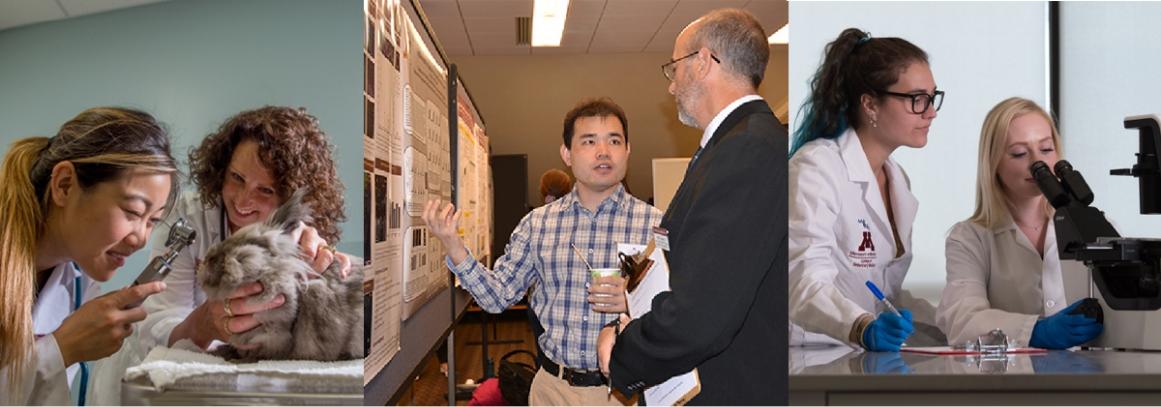
The College of Veterinary Medicine's amazing breadth and quality enable us to advance One Health through research, education and service our faculty, staff and students engage in every day.
Who we are
Established in 1947, the University of Minnesota College of Veterinary Medicine is Minnesota's only veterinary college. Fully accredited, the college has graduated nearly 4,000 veterinarians and hundreds of scientists. The college is also home to the Veterinary Medical Center, the Veterinary Diagnostic Laboratory, the Leatherdale Equine Center and The Raptor Center.
One Health

The college embraces the "One Health" concept, which aims to transform new knowledge into better health for animals, people, and the environment. The college also plays an important role in the health of the community by assuring food safety, conducting biomedical research, preventing zoonotic diseases, and enhancing our physical and psychological well-being through the care of companion animals and the protection of Minnesota’s wildlife natural resources.
Our mission
Our focus is building a globally diverse and inclusive community to improve the health of animals, people, and the environment. This will be accomplished by discovering and disseminating new knowledge and skills, educating current and future veterinarians and scientists, and providing innovative veterinary services.
Our values
Science & knowledge
We' re first and foremost about the discovery, integration, application, and dissemination of new knowledge.
Teaching & learning
Our education is rooted in cutting-edge science and delivered with learner-focused techniques that instill leadership skills, ethical standards, and a capacity for lifelong learning.
People
We respect and support our colleagues. We're dedicated to developing skills and expertise and promoting inclusion for varied opinions, backgrounds, and perspectives.
Collaboration
We proactively develop and support partnerships with individuals and organizations that share our scientific, professional, educational, and policy interests.
Accountability
We hold ourselves to the highest ethical standards. We take responsibility for our actions in all facets of our work. We strive continuously to enhance our programs and services. We measure our effectiveness, and we report our progress.
Leadership
We lead by influencing and contributing to science, animal welfare, food animal agriculture, the veterinary profession, and the intersections of animals, humans, and the environment.
Land acknowledgement
The University of Minnesota Twin Cities is built within the traditional homelands of the Dakota people. It is important to acknowledge the peoples on whose land we live, learn, and work as we seek to improve and strengthen our relations with our tribal nations. We also acknowledge that words are not enough. We must ensure that our institution provides support, resources, and programs that increase access to all aspects of higher education for our American Indian students, staff, faculty, and community members.